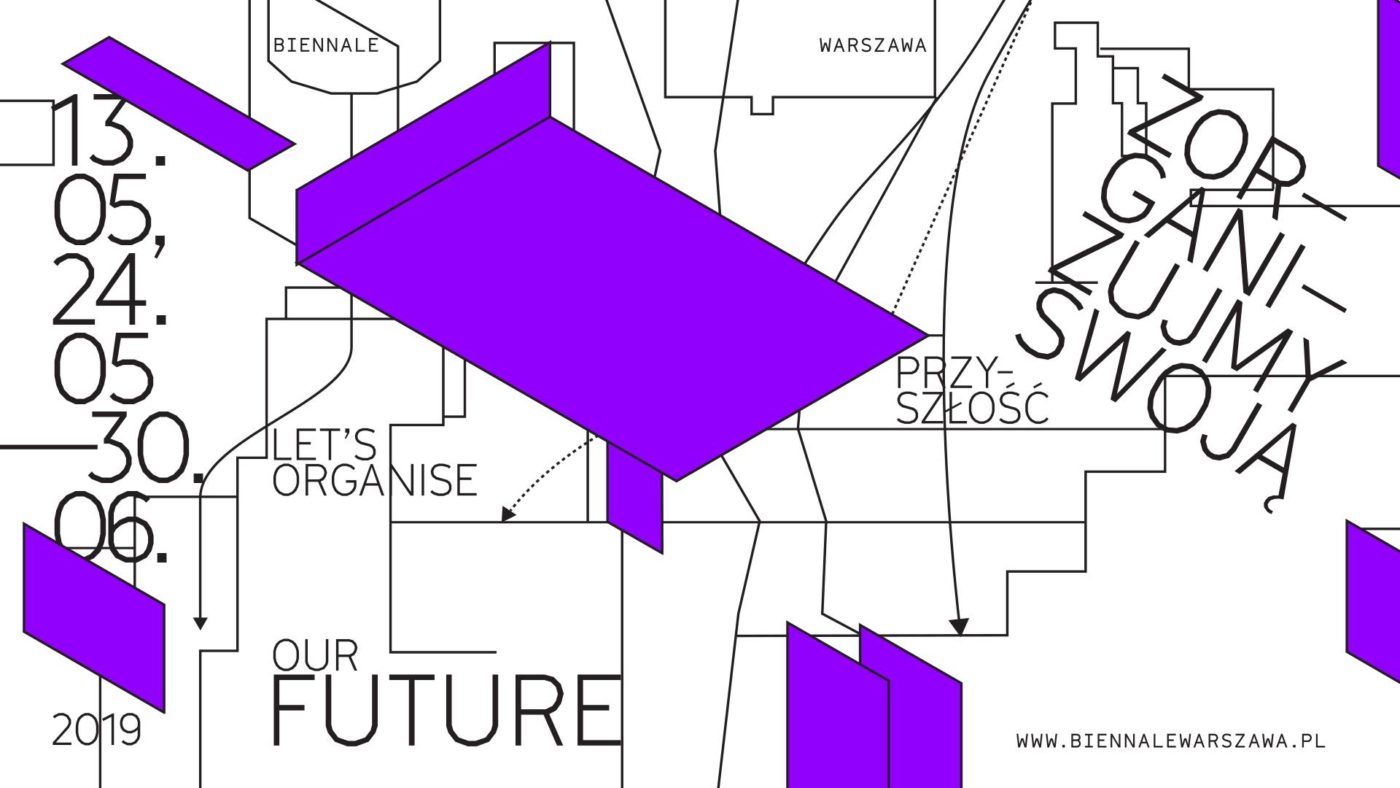The programme of the 1st edition of Biennale Warszawa “Let’s Organize Our Future!” was a summary, completion and extension of two years of the institution’s activities (2017–2019), focused around issues related to new political projects, as well as economic, social, ecological and educational alternatives. Four assemblies: Polish Social Forum, East European – North African – Middle East Forum, Covnevtion of Women Farmers, Transunions created the core of the programme. It was around these that the visual, performative and discursive programme was centred. For more than two years, artists, researchers and activists were reflecting together on what our future should look like, how it can be organised, what institutional forms would be most appropriate to go beyond the apocalyptic visions of the future that dominate our political, social and cultural life. During the 1st edition of the biennial, alternative organisations and institutions were discussed and created that would be able to propose a different vision of the future, based on values such as democracy, progress, solidarity.
The 1st edition of Biennale Warszawa “Let’s Organize Our Future!” – an interdisciplinary event dedicated to designing the future, expanding the boundaries of socio-political imagination and testing positive alternatives to current solutions took place in Warsaw in May and June 2019. In May and June 2019, all people invited to join the collective preparation of the Biennal by the curators participated in 56 events. As many as 41 out of these events were planned especially for Biennale Warszawa “Let’s Organize Our Future!”. The biennial programme was divided into four blocks: direct democracy, democratic education, transnational metropolis, and transnational solidarity. The comprised theatre performances, concerts, exhibitions, lectures, conferences, workshops, tours, film screenings, congresses, conventions and debates. 108 presentations, 16 locations.The presentation spaces were located in the Biennale Warszawa headquarters at Marszałkowska 35/40 as well as on scenes and in locations of partner cultural institutions: Nowy Teatr, Museum of Modern Art in Warsaw, Teatr Powszechny, TR Warszawa, U-jazdowski Centre for Contemporary Art, Museum of the History of Polish Jews POLIN, Museum of Praga. The activities of the biennial were organised also in places in Warsaw which may be less obvious for the audience: an empty school building on Skaryszewska street, on the marketplace on Namysłowska street, on Kijowska street, on the route from Muranów to Śródmieście, at the Castle Square, the W-Z Route and the Constitution Square.

